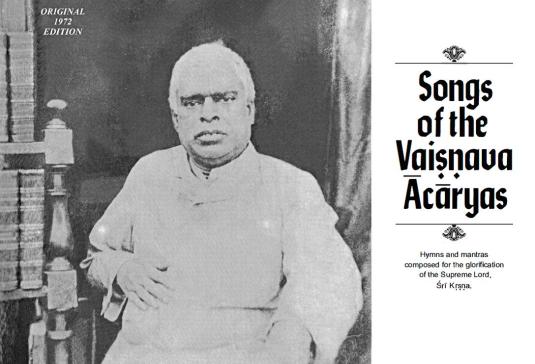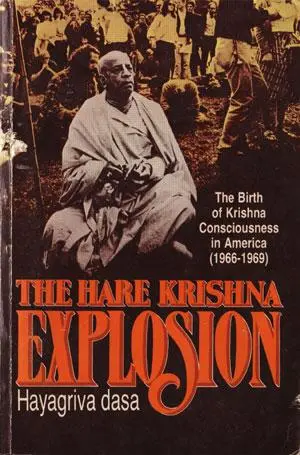If I had to pick one book that inspired me the most throughout my devotional life, I guess I would have to say it is “Songs of the Vaisnava Acaryas”. I recently went to open it the other day, and it fell open to the Introduction. I took a moment to re-read it. We share it with you here today.
Introduction
by Acyutananda Swami
It was my good fortune to be in the service of Srila Prabhupada at Sri Mayapur, the birthplace of Lord Caitanya, in setting up the groundwork of our Society’s international center there. That year (1971) there was a terrible flood, but although for many days the water was rising, it was diverted from floodinging the Society’s property solely due to the embankment created by a road constructed by Srila Bhaktisiddhanta Sarasvati, our Parama Guru Maharaja. I wrote a letter to His Divine Grace explaining the situation and I mentioned, “The water has not entered our property. Srila Bhaktisiddhanta’s road has saved us.” Srila Prabhupada, however, wrote back in answer in a different tone: “Yes”, we are always saved by Srila Bhaktisiddhanta’s road, so go on glorifying the disciplic succession, and your life will be a great success.” Later on, when I suggested writing down the songs of Srila Bhaktivinoda Thakura and Narottama Dasa Thakura in English translations, His Divine Grace said, “Yes, we must push on this mission of Bhaktivinoda.” So here in this book, which is the first of a series of translations of the complete works of the Vaisnava acaryas in the line of succession coming after Sri Caitanya Mahaprabhu, I have also included a short life sketch of Thakura Bhaktivinoda. In the following volumes, the lives of Srila Narottama Dasa Thakura, Srinivasa Acarya, and other Vaisnava acaryas will appear.
















